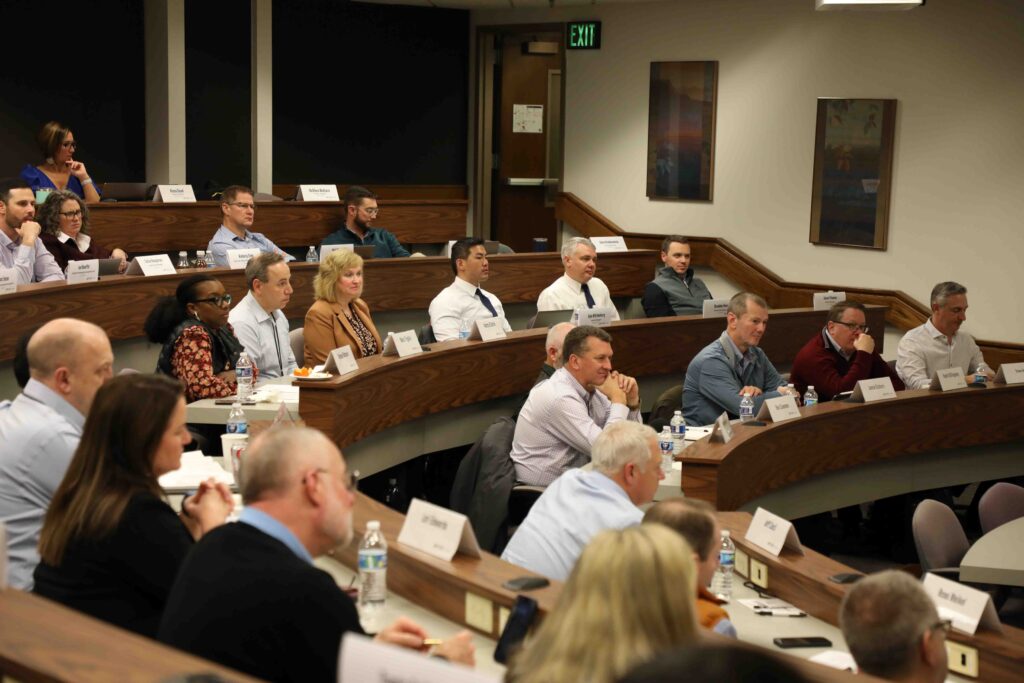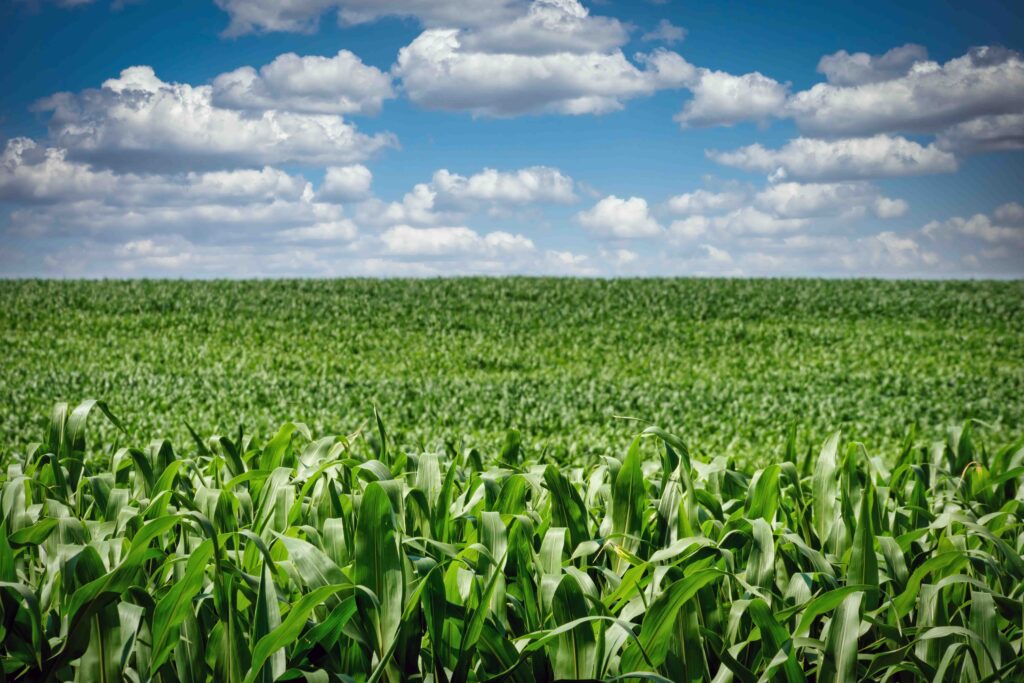Last week, the 2023-25 MS-MBA cohort took part in their fifth and final residency of the program, traveling to Brazil for a week of deep immersion in large-scale agricultural production, cultural experiences and connection.
We kicked off Monday morning at Harven Agribusiness School with an overview of Brazil’s agricultural and economic landscape and engaged with undergraduate students. That afternoon the group headed to São Martinho, one of the largest sugar-energy producers in the world. With over 350,000 hectares of harvestable farmland, this vertically integrated company operates enough equipment to travel a combined 87,000 km/day – equivalent to circling the Earth twice.
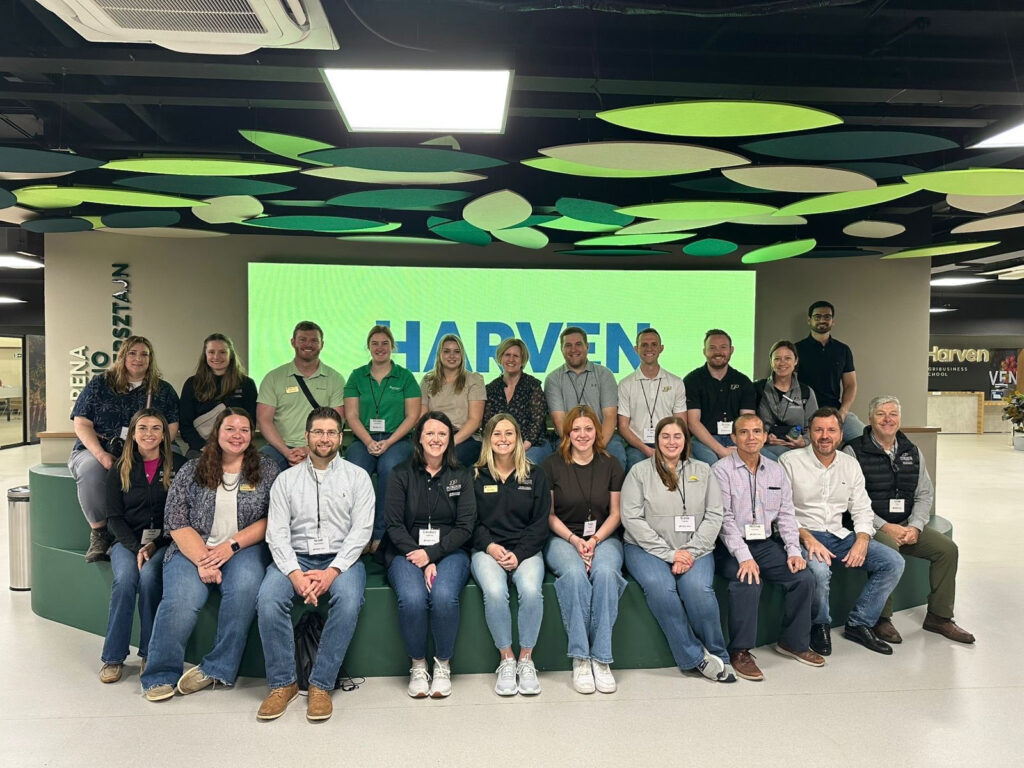
Tuesday was spent following oranges through the supply chain with Cutrale, a family-owned, vertically integrated orange production and processing business. Processing more than 3 million tons of oranges annually, Cutrale is a global player – odds are, if you drank orange juice this morning, it came from them. To ship orange juice around the world, they rely on an aseptic bulk storage system built into the hulls of ships – an innovation developed by Purdue’s Dr. Phillip E. Nelson.
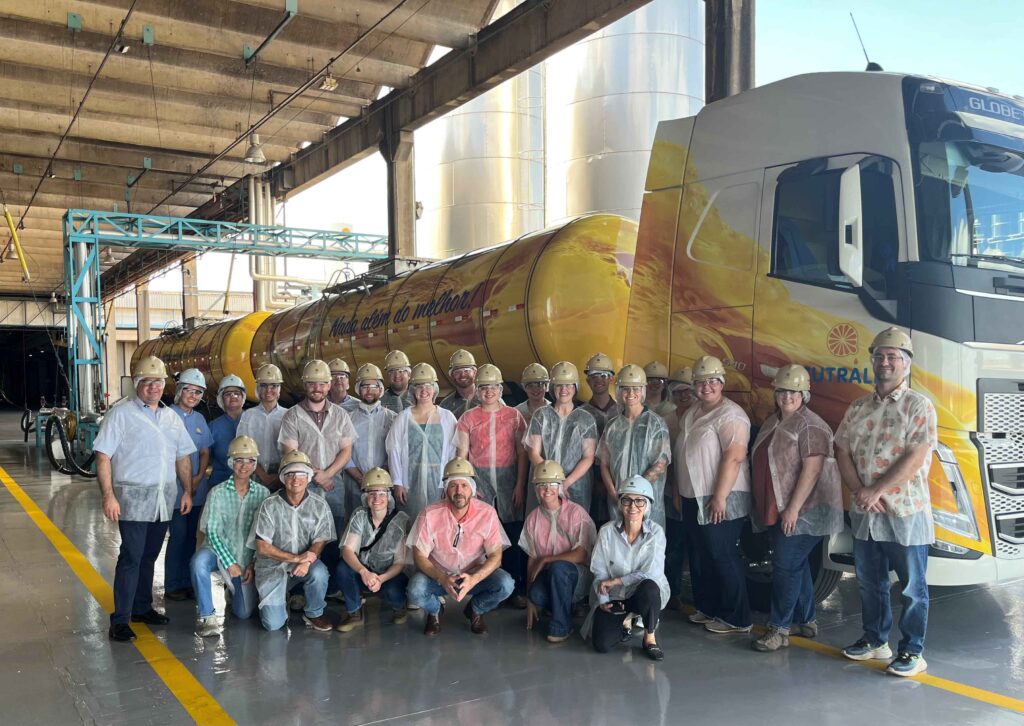
Wednesday was all about coffee. Brazil is the world’s largest producer and exporter of coffee, contributing to about 30% of the global market. The cohort visited Cooxupé Export, the largest coffee cooperative in the world, which has more than 20,000 members and exported 5.5 million bags of coffee in 2024 (1 bag = 132 lbs.).
Thursday we headed to Altair, SP, where the group toured Campanelli & TECNOBEFF, a family-owned farming operation focused on efficiency and the circular economy. Always “in the business of change,” the organization has evolved from coffee and orange production to sugar cane, a 120,000-head cattle feedlot and feed business. The day concluded at Coopercitrus, a 40,000-member cooperative with 60 locations selling ag inputs, machinery and implements.
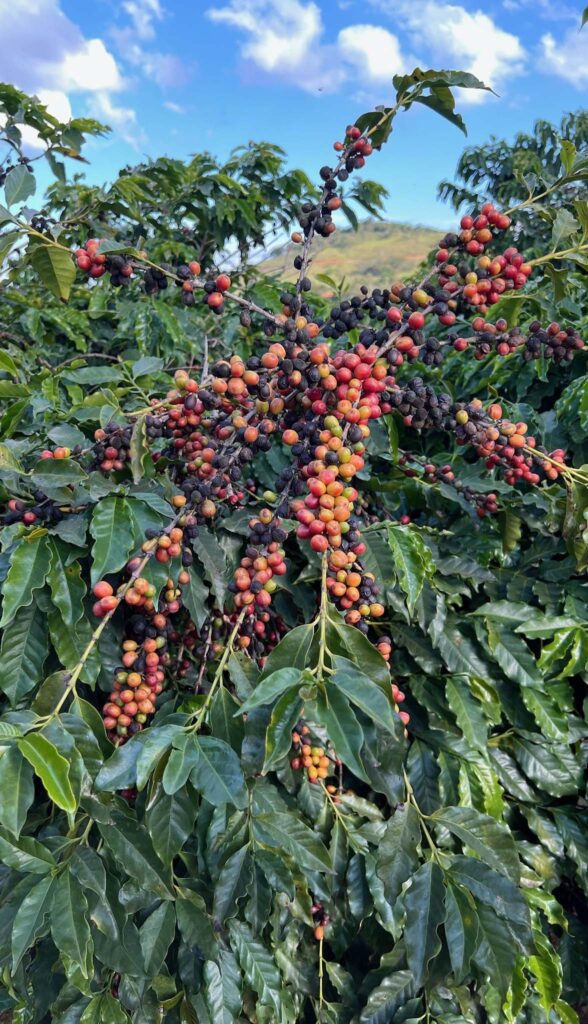
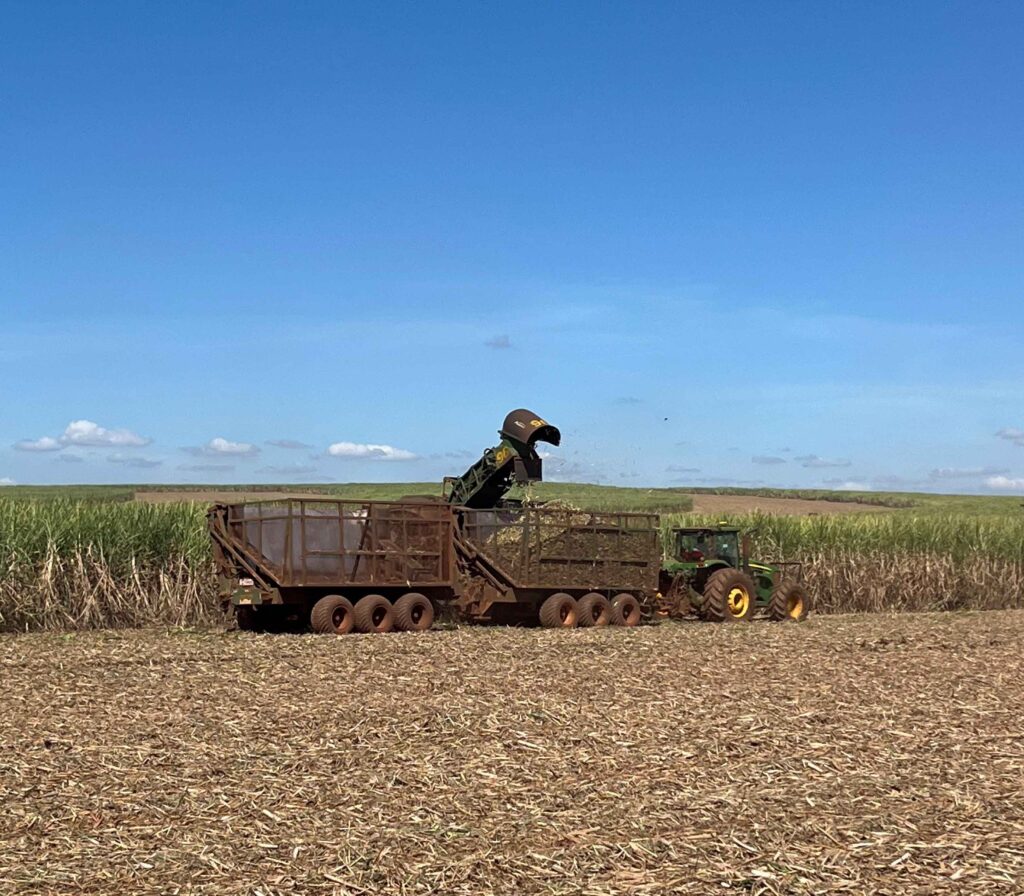
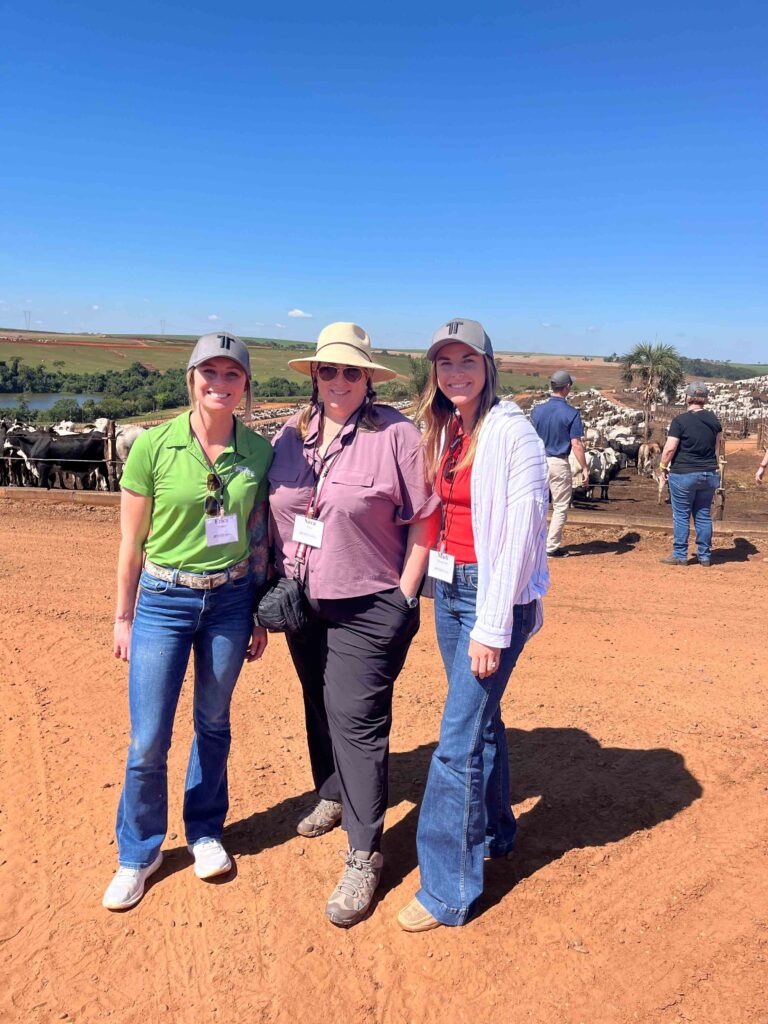
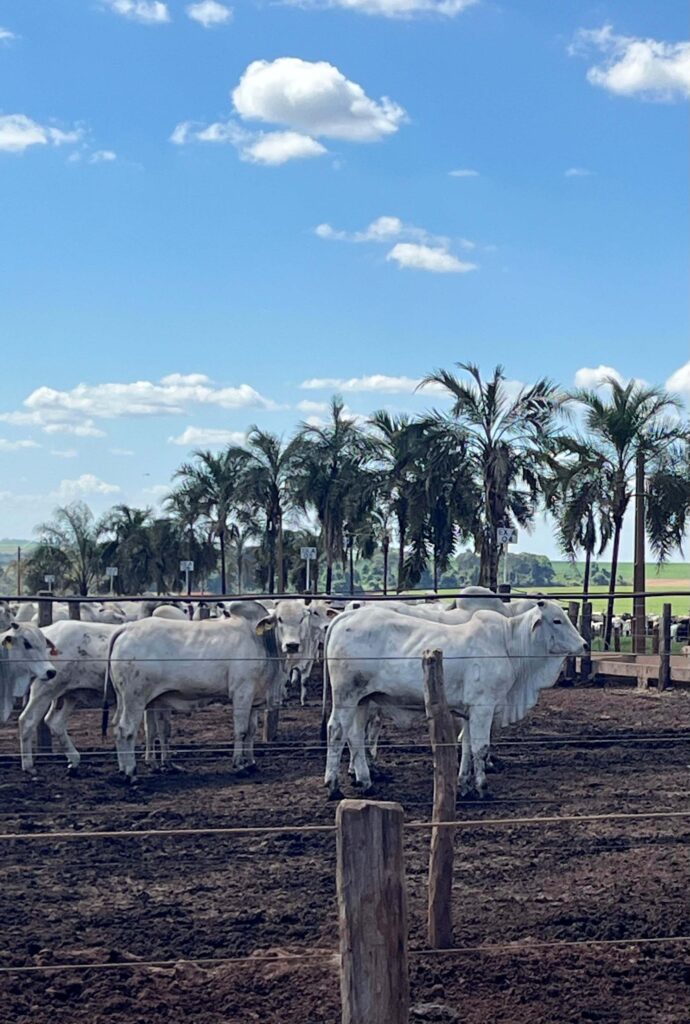
The week wrapped up on Friday with a tradeshow activity where participants synthesized their key takeaways using the PESTEL model (Political, Economic, Social, Technological, Environmental and Legal factors).
Reflecting on the experience, cohort member Sarah Morton shared:
My recent international agribusiness residency in Brazil was a powerful and multifaceted exploration of how macroeconomic forces, culture, innovation, and environmental strategy shape one of the world’s most dynamic agricultural sectors. Through site visits and by engaging lecture content, such as Dr. Marcos Fava Neves’ strategic overview, I gained firsthand insight into what makes Brazil the powerhouse it is today. It challenged my previously held beliefs about Brazil’s approach to sustainability and the environment, innovation and technology, and size and scale for agriculture operations. The shared experiences of the Brazilian culture with my cohort is something that brought our group closer together to form a powerful network of both friendship and professional understanding.
- Sarah Morton
This international residency is just one component of our MS-MBA in Food and Agribusiness Management, a dual-degree, industry-focused program offered by Purdue University and Indiana University’s Kelley School of Business. In 27 months and with five residencies – including this international experience – participants earn both an MS in agricultural economics from Purdue and an MBA from IU.
The program is primarily delivered through distance learning, with five in-person residencies – including this international experience. The next cohort begins in August 2025, with applications open until July 18, 2025. Joining our MS-MBA program means investing in your future, as well as your company’s future.
Interested in learning more? Click here to explore the program.



